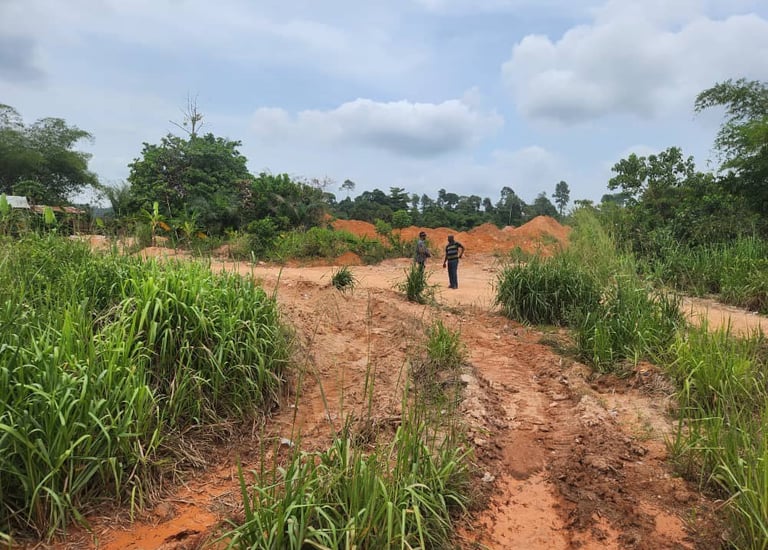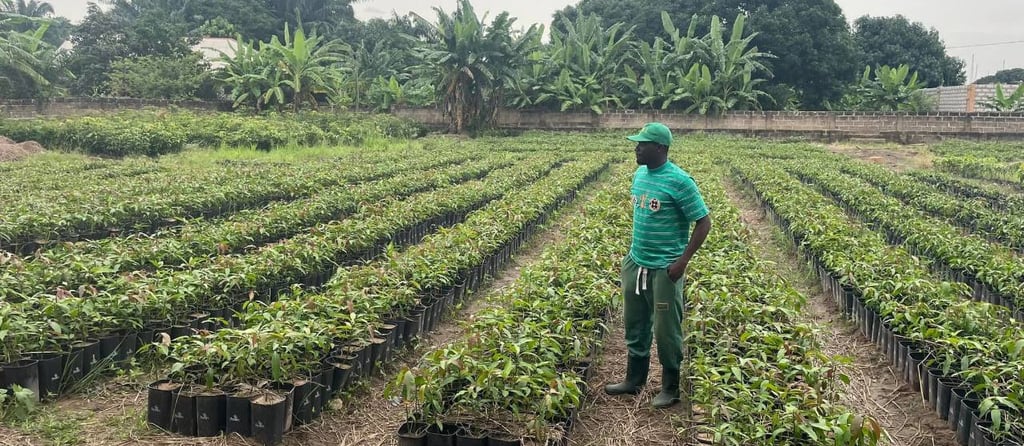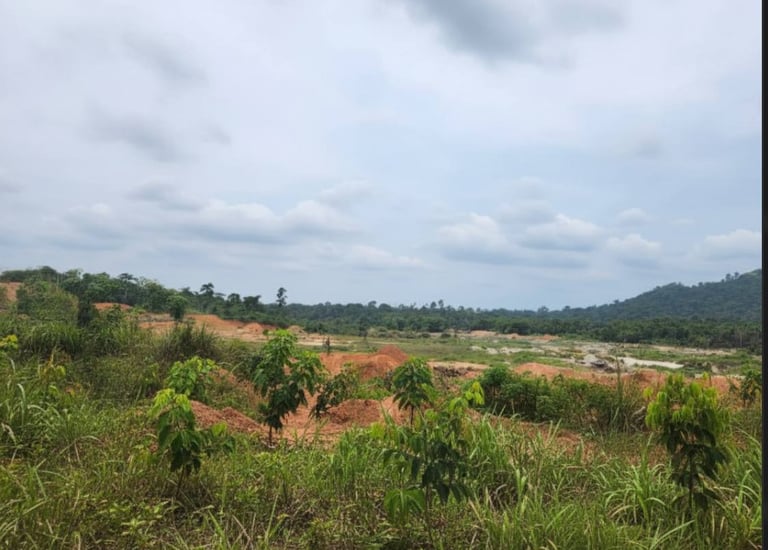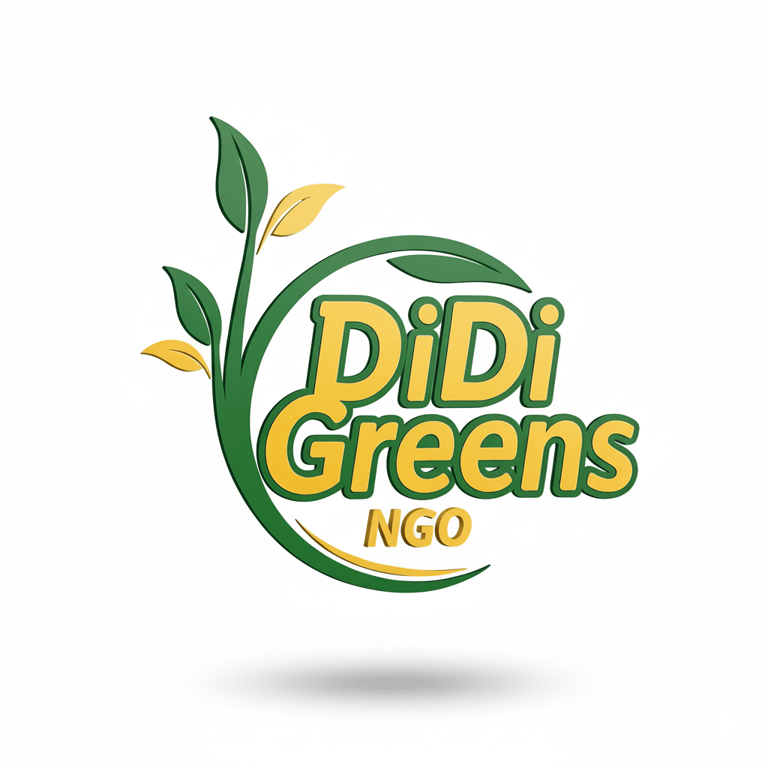Projects
Community-led restoration efforts.
DiDi Greens is a community-rooted NGO restoring mined and degraded land across Obuasi and the Ghana Cocoa Belt. Our field model stabilises sites with clean, raised berms and simple water-harvesting, then establishes climate-smart agroforestry: grafted avocado interplanted with suited natives and cocoa companions. We pair this with Black Soldier Fly (BSF) bioconversion—turning local organic waste into nutrient-dense frass—applied at calibrated rates and covered with mulch to lift soil organic matter, structure, and moisture. Year 1–2 targets: 300 ha under restoration, 250,000 trees established, ≥75% 12-month survival, and 8 km of riparian buffers to protect waterways.
Women and youth lead delivery in paid roles—nursery production, grafting, BSF field application, maintenance, pruning, harvesting, and local sales—with on-the-job training, PPE, and simple SOPs. A youth stewardship network (equipped with smartphones, monthly data, and small stipends) confidentially reports illegal mining and supports day-to-day site care (watering, weeding, survival checks). Tenure and permanence are reinforced through community by-laws, site-level MOUs with landholders and local authorities, and agreed maintenance responsibilities. Market access grows alongside recovery through basic grading and aggregation, so households can earn more from what they grow.
Monitoring, evaluation, and learning (MEL) make outcomes verifiable and adaptive. Every plot is geo-tagged; survival is checked at 3, 6, and 12 months with targeted replanting; frass application is logged by t/ha; and soil cover/moisture are tracked seasonally. Where mining legacies exist, we combine berming, mulching, and safe-handling guidance with annual third-party fruit-pulp heavy-metal tests before market sales. Near-term technical targets include 1.5–2.0 t/ha frass on 200 ha pilot blocks, a +0.2–0.3% gain in soil organic carbon within 24 months, resolution tracking for reported illegal-mining incidents, and independent spot checks to validate data and community feedback meetings.
The operation is sized for scale and value for money: nursery throughput ~250,000 seedlings/year; BSF output ~900 t frass/year (blended with locally made compost where useful); indicative economics of €1,150 per hectare restored and €2.40 per surviving tree at 12 months (inclusive of establishment, early maintenance, MEL, and stewardship). Risk controls include dry-season watering rotas, seedling replacement thresholds, buffer zones for waterways, and site security through community stewards and local authority coordination. With support, we will expand berming and water management across priority micro-catchments, grow the steward network, maintain independent testing, and strengthen off-take pathways—so restored land becomes lasting, food-producing farms that raise incomes and resilience.






Contacts
Phone Number : +233
Address
Abompe New Site Obuasi Ghana
